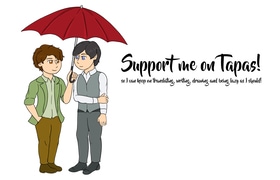At the risk of losing even more of my appetite than I already seemed to have, I took advantage of my arrival in the village where the town hall where Joaquín worked was located to have a quick lunch at the nearest tavern.
While I was there, I asked the owner if he had seen Joaquín on the last day he was alive. Indeed, he confirmed that Joaquín often stopped by the establishment during his lunch break. The day before his death was no exception. Despite being a regular who usually stopped to chat with the owner about any trivial topic during the day, this time Joaquín stayed at his own table, having lunch with some colleagues.
This, in itself, wasn’t unusual: the tavern was busier than usual that day, so the owner and his staff were too occupied during the peak hour to spend much time chatting with customers.
Was there anything unusual about Joaquín’s behavior during the half hour he was there? No, at least no one noticed anything odd, given how little interaction they had with him. Perhaps they found him a bit more tired than usual since he ordered a strong coffee after finishing his lunch, but that wasn’t unusual for him on days when he had a lot of paperwork at the town hall. So no, that wasn’t cause for alarm either.
Since it was clear I wouldn’t get much more from the tavern, I headed to the town hall, an 18th-century building standing at the other end of the same square where Joaquín spent most of his days.
The building was imposing on the outside but smaller than expected inside. Upon entering, the first thing one encountered was a tiny room, barely a couple of square meters, with a counter and a few old paintings of villages that belonged to this municipality. No one was behind the counter initially, but the creaking of the front door upon entering was distinctive enough to alert an employee to my presence, even if no one was there to greet me immediately.
“If you’re here for the reading club or the crafts club activities, I must tell you they were canceled over a week ago and won’t resume until further notice,” said the woman, efficient in tone, as if she had already explained this to several people who hadn’t heard about the cancellations.
“Oh… No, I’m not here for that,” I said, introducing myself and briefly explaining that I was investigating what had happened to Joaquín. “But why were they canceled?”
“Budget issues, as always. We announced it at the last neighborhood meeting, at the final class, and even left a notice on the town hall door just in case. But no, people still come to ask or try to use the community space at odd hours because they haven’t noticed the change.”
I thought she was complaining about the neighbors—particularly the older ones—not listening and only hearing what they wanted. But after two seconds, she slightly shifted her tone to add:
“I don’t really mind, to be honest. In the end, it’s the mayor’s fault. How does he expect to win the next election if he cuts these workshops without explanation?”
“Didn’t you say it was due to budget issues?”
“That’s the excuse he gave me when he decided to stop needing my services as a workshop instructor. And while signing up for these classes is free for the neighbors, tell me, how much could it really cost the mayor to pay me a little extra for those hours or buy one or two materials for the classes?”
I had no idea about the logistics of these classes, but I could understand why someone involved in them daily might be upset if they were canceled without notice. So, before redirecting the conversation to Joaquín, I made sure to show solidarity with her situation.
“What happened to him was awful. I still can’t wrap my head around it,” said the woman, who introduced herself as Casandra Faílde, one of the few people working almost daily in that administrative building. “Joaquín and I used to work together in the archives, although since I was also busy with the classes, my role was more of an assistant. He decided where things should go for easier processing and had more freedom to approve or reject permits.”
“I thought such decisions about contracts were the mayor’s responsibility, along with his advisors, if he had any.”
“In theory, yes, but this is a small town hall. Not many people to consult for an extra opinion. And as I imagine you know, Joaquín and Narciso were always very good friends. Of course, the mayor has an entourage to debate changes in the region during meetings, but that didn’t diminish Joaquín’s importance.”
“His wife told me he wasn’t ambitious, that he wasn’t interested in gaining political power here.”
“And she’s right—Joaquín’s ambitions never leaned that way,” Casandra affirmed with conviction. “He could afford to take certain liberties with paperwork or advise Narciso when his opinion was needed, but I don’t think he ever did those things for personal gain. It was always to help the town hall and his friends. After all, Joaquín could have been a councilor—he had the intelligence and the connections for it.”
It was becoming increasingly clear to me that Joaquín wasn’t just well-liked by those who knew him but also projected a rare competence.
“Can you tell me about the last day you saw him? How was he doing?”
“Tired… and a bit stressed, but not so much that he couldn’t step away from his desk to handle pending work. And believe me, I’ve seen Joaquín in much worse states during real crises.”
“Do you know what was bothering him?”
“Oh, the issue with the Parada bridge. Apparently, a friend of the mayor was determined to build it at a problematic height since one end of it led to private property. A shed would have to be demolished or moved—or something like that. It was one of those kinds of issues. Since the property owner didn’t want to sell, Joaquín had been negotiating for weeks to convince the bridge developers to build it a few meters away so it wouldn’t interfere with those lands.”
“Did he succeed?”
“From what he told me—because I have no authority in such negotiations—he seemed to be on the verge of closing the deal. Yes, he managed to convince them.”
Another issue that didn’t seem worth killing over… Unless it hadn’t been resolved.
“Was there any written confirmation that the bridge would be built elsewhere?”
“I don’t think so. They were supposedly preparing the papers for the notary, but that’s where things stood when Joaquín died. Nothing has been signed yet, although I imagine the conditions are more or less set.”
It sounded unfortunate, sure, but would someone really have a problem with this? I imagined the mayor, notary, and those involved in the construction could better explain the conflict.
So, I proceeded to ask Casandra for the real reason I had come to the town hall: to have a conversation with Narciso and see what insights he could contribute to my particular investigation.
Casandra was quite cooperative; while she offered to notify her boss of my presence, she invited me to wait in the office she shared with Joaquín—a space that, while she referred to it as such, was more appropriately described as the archives room of the town hall.
Because, again, the building was too small to house multiple rooms. The so-called office was essentially part of the archive itself, consisting of a couple of desks placed in the center of four walls lined with shelves and filing cabinets.
The room was a bit disorganized, with books and folders scattered everywhere. Yet, at least, the documents were labeled, and as Casandra noted, it might look chaotic, but those who worked there knew exactly where everything was.
I waited there for about five minutes, having promised Casandra I wouldn’t touch anything, until she returned with the mayor. And yes, I kept my promise: I didn’t touch a single thing. However, my eyes couldn’t help but wander to the desk that had once belonged to Joaquín, which was still cluttered with paperwork that he had likely been working on at the time of his death.
Approaching the desk, I barely glanced at the documents lying on it. Most of them were receipts already paid by the town hall for cleaning public facilities or purchasing supplies—nothing of real interest. No, what caught my attention wasn’t the papers but the calendar sitting in one corner of the desk. A specific date was circled: October 19th, three days before Joaquín’s body was found.
The date was marked with the name Irago written in small letters.
Who or what was Irago? I didn’t know anyone by that name—not even by reputation.
"Ah, so here’s the newcomer!" the mayor exclaimed as soon as he saw me, entering the archive without warning and with Casandra trailing behind him. "When you mentioned that the police had come, I thought you meant Taboada."
Casandra merely shrugged, as if she didn’t see the distinction. Narciso, however, clearly did: while he referred to the lieutenant as an old friend he had nothing to fear from, he looked at me as if I were a rookie—someone fresh out of the academy who, despite wearing a police uniform, posed no real threat to his authority.
And honestly, he wasn’t entirely wrong. I could command respect among ordinary citizens depending on the circumstances. But within the town hall and under the lieutenant, they were my superiors, so unless there was a sudden shift in the chain of command, I would always be under their orders.
"Do either of you know anyone named Irago?" I suddenly asked, not wanting to get caught up in power dynamics that would lead nowhere.
"Irago? You mean the engineer I hired to look into the bridge issue?" Narciso recognized the name immediately. "We’ve known each other for years. Whenever there’s a construction project or something needs to be inspected to ensure it won’t collapse, he’s the one I call."
"I asked because I understood Joaquín met with him regarding the project—something about permits, wasn’t it?"
I looked to Casandra for support, and she nodded, though without much commitment.
"That was his job, after all. I believe they met more than once," she said.
"And what’s the problem with that?" Narciso asked, appearing perplexed as to why he had been momentarily pulled away from his duties to be here. "It’s standard procedure. The town council decides what to build, how, and when. Then Joaquín had to handle all the paperwork involved, which, of course, included being in constant contact with the project manager throughout its duration."
"But had it been decided exactly how and where it would be built?"
"We had plans drawn up. If necessary, Casandra can show them to you," the mayor continued, clearly uninterested in the matter. "During the vote, we all agreed. It’s no one’s fault that when we went to the site to survey the land, we discovered someone living there—with an illegal shack right by the road. We told him to move, and he refused. These things happen."
"You seem quite unconcerned about the whole incident."
Narciso shrugged.
"I am, and always have been. Cipriano’s property—he’s the guy causing the trouble—is his, yes. But he doesn’t have any construction permits for that shack of his. We made it clear when we saw it: he had two options. Either leave the area and let us build the bridge—in exchange, the town hall wouldn’t fine him for that illegal construction—or stay stubbornly put… knowing full well he’d face a fine and likely a demolition order."
"Neither option is particularly pleasant," I observed. But given the situation, I understood there wasn’t much that could be done differently. "But as far as the town hall’s interests are concerned, which outcome would be preferable?"
"Obviously, for Cipriano to move without causing a fuss. Though, even then, we’d still need to demolish the shack and clear the debris before proceeding, which will cost money too. But I was clear with Joaquín when I tasked him with mediating between the two sides: the priority was to reach an agreement so the construction could proceed. Cipriano doesn’t matter to me; whether he stays or his shack is torn down, it’s all the same to me. And if the architects say the bridge would be better built a few meters away, that’s fine too. I’m not an engineer to be criticizing things I don’t understand."












Comments (0)
See all